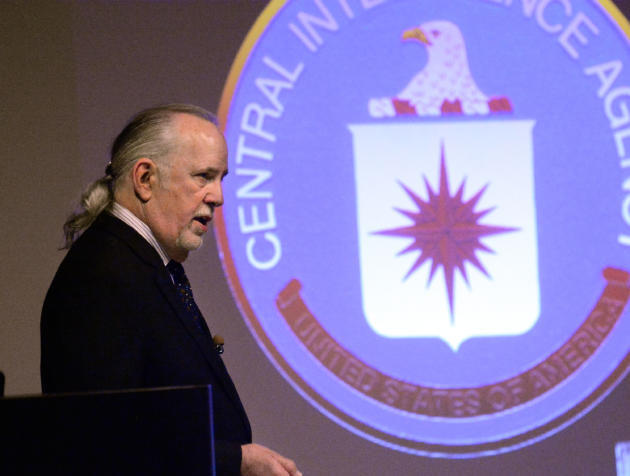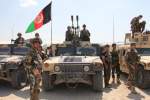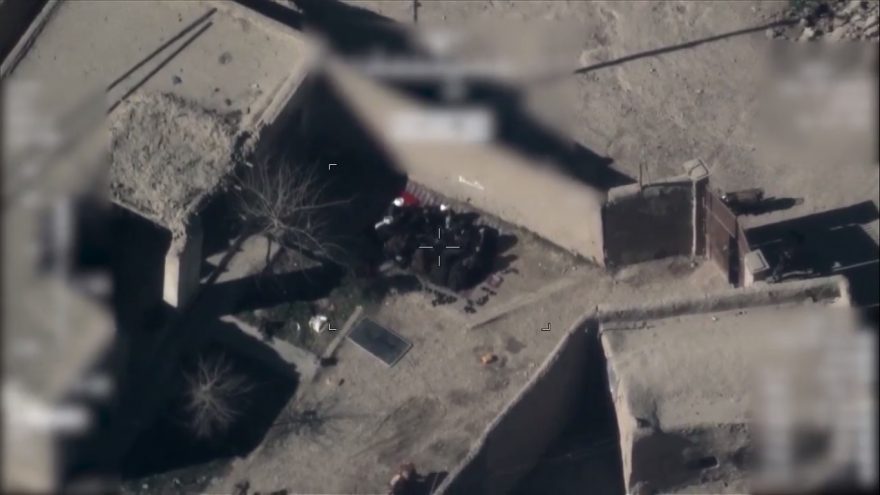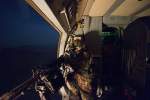The United States accomplished its mission and should have gotten out of Afghanistan years ago, according to a former CIA officer who was part of a team there in the months following the terrorist attacks on Sept. 11, 2001.
Publish dateSunday 7 April 2019 - 11:37
Story Code : 182802
AVA- “I don’t consider myself an expert on Afghanistan, I don’t consider myself an Afghanistan scholar,” retired CIA senior officer Douglas Wise said. “But Afghanistan is part of my journey. And I’m a short part of Afghanistan’s journey.”
Wise shared his story about being a member of one of the first CIA teams sent to Afghanistan after 9/11 and his opinions about the continuing presence of American troops in the war-torn country at an event hosted by the Albuquerque International Association on Friday.
Wise said he’s no fan of President Donald Trump, “but I find myself in agreement with the president on this issue.”
Trump announced plans of a pullout earlier this year, saying the U.S. would reduce the number of troops in the country from 14,000 to 7,000. The U.S. has been involved with peace negotiations with the Taliban. Sen. Tom Udall, D-N.M., co-sponsored legislation with Sen. Rand Paul, R-Ky., earlier this year that would bring an end to the war and bring the troops home.
Wise was part of a team that deployed to the eastern part of Afghanistan to begin operations against al-Qaida and the Taliban. He said part of the team’s mission was to seal off an escape route that could be used by al-Qaida leader Osama bin Laden to flee the Tora Bora region, which was under assault by U.S. troops and their allies.
Wise said his team, working with the military, rid the area of al-Qaida and the Taliban.
“We had to respond to the tragic events of 9/11,” Wise said.
He said the U.S. established a presence to counterterrorism efforts by al-Qaida. Wise said the U.S. at one point rid the country of al-Qaida and the Taliban had fled back into Pakistan “where it had originated.”
“We accomplished that,” Wise said, “then we should have left.”
He said conditions in Afghanistan are not ripe for a policy of nation-building. He calls Afghanistan a “country, not a nation” where ethnic divisions make it difficult to have an effective centralized government.
He’s also of the opinion that the dream of a democratic Afghanistan is also “unachievable.”
“Is there an acceptable, feasible, achievable goal (with a continuing U.S. presence)?” Wise asked. “My answer is no.”
He said it is entirely possible that the Taliban – which he said had a closer connection with the Afghan people than Westerners in the country – could again regain control of the government “and things could return to pre-9/11 conditions.”
He said it’s possible a Taliban-led Afghanistan could again become a base for terrorist organizations.
Wise feels the only way the U.S. could prevent that would be through “an unlimited military presence and unlimited treasure.”
Wise said it’s possible a Taliban takeover would again lead to the subjugation of women and the return of torture.
But he said that wouldn’t make Afghanistan much different from other conservative Islamic countries, including U.S. ally Saudi Arabia.
“The Taliban have not attacked Americans outside of Afghanistan,” Wise said.
He said the same could not be said of Saudi Arabia, where Crown Prince Mohammed bin Salman has been accused of ordering the death of U.S. legal resident Jamal Khashoggi, a reporter for The Washington Post.
Wise served two tours in Afghanistan. He is also a former deputy director of the Defense Intelligence Agency.
Wise shared his story about being a member of one of the first CIA teams sent to Afghanistan after 9/11 and his opinions about the continuing presence of American troops in the war-torn country at an event hosted by the Albuquerque International Association on Friday.
Wise said he’s no fan of President Donald Trump, “but I find myself in agreement with the president on this issue.”
Trump announced plans of a pullout earlier this year, saying the U.S. would reduce the number of troops in the country from 14,000 to 7,000. The U.S. has been involved with peace negotiations with the Taliban. Sen. Tom Udall, D-N.M., co-sponsored legislation with Sen. Rand Paul, R-Ky., earlier this year that would bring an end to the war and bring the troops home.
Wise was part of a team that deployed to the eastern part of Afghanistan to begin operations against al-Qaida and the Taliban. He said part of the team’s mission was to seal off an escape route that could be used by al-Qaida leader Osama bin Laden to flee the Tora Bora region, which was under assault by U.S. troops and their allies.
Wise said his team, working with the military, rid the area of al-Qaida and the Taliban.
“We had to respond to the tragic events of 9/11,” Wise said.
He said the U.S. established a presence to counterterrorism efforts by al-Qaida. Wise said the U.S. at one point rid the country of al-Qaida and the Taliban had fled back into Pakistan “where it had originated.”
“We accomplished that,” Wise said, “then we should have left.”
He said conditions in Afghanistan are not ripe for a policy of nation-building. He calls Afghanistan a “country, not a nation” where ethnic divisions make it difficult to have an effective centralized government.
He’s also of the opinion that the dream of a democratic Afghanistan is also “unachievable.”
“Is there an acceptable, feasible, achievable goal (with a continuing U.S. presence)?” Wise asked. “My answer is no.”
He said it is entirely possible that the Taliban – which he said had a closer connection with the Afghan people than Westerners in the country – could again regain control of the government “and things could return to pre-9/11 conditions.”
He said it’s possible a Taliban-led Afghanistan could again become a base for terrorist organizations.
Wise feels the only way the U.S. could prevent that would be through “an unlimited military presence and unlimited treasure.”
Wise said it’s possible a Taliban takeover would again lead to the subjugation of women and the return of torture.
But he said that wouldn’t make Afghanistan much different from other conservative Islamic countries, including U.S. ally Saudi Arabia.
“The Taliban have not attacked Americans outside of Afghanistan,” Wise said.
He said the same could not be said of Saudi Arabia, where Crown Prince Mohammed bin Salman has been accused of ordering the death of U.S. legal resident Jamal Khashoggi, a reporter for The Washington Post.
Wise served two tours in Afghanistan. He is also a former deputy director of the Defense Intelligence Agency.
avapress.net/vdcawun6u49naa1.tgk4.html
Tags
Top hits












